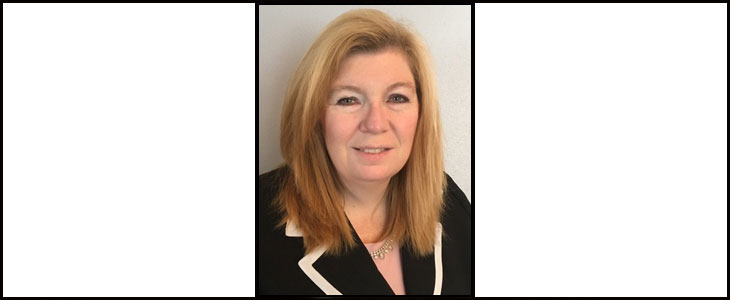
Amy Wotapka, CAMS, is a lifelong banker with more than 20 years in the anti-financial crime (AFC) industry. Beginning her career as a suspicious activity investigator, Wotapka now serves as Bank Secrecy Act (BSA) and Office of Foreign Assets Control (OFAC) officer for First American Bank, a $6 billion privately held financial institution (FI) with offices in Wisconsin, Illinois and Florida. As a longtime member of ACAMS, Wotapka is passionate about sharing knowledge. She serves on the ACAMS Today Editorial Committee and has authored numerous articles for the magazine. In addition, she has enjoyed the opportunity to present for ACAMS at conferences and on webinars on a variety of topics. Wotapka is a founding member of the ACAMS Richmond Chapter (now the ACAMS Virginia Chapter).
ACAMS Today (AT): What constitutes a typical workday for you as a BSA and OFAC officer for First American Bank?
Amy Wotapka (AW): There is no typical workday—which is one of the many reasons I am grateful to be in my role. I sometimes start my day with an update message to my team. There is the obligatory reading and responding to emails. I enjoy catching up on regulatory developments from my emails and social media. A portion of my day is spent looking through monitoring reviews my team conducted on higher risk customers. There is always a meeting or four to attend. I enjoy opportunities to deliver training to my team or business unit partners. My team is remote, so to encourage team building, we have a weekly coffee break session. One week, we have a chance to chat and catch up on each other’s lives and the next week is a fun team event. Our one rule for coffee break—no work talk! I’ve found certain members of my team are very competitive. Unscheduled time is for thinking about our various programs considering the controls and where we can find efficiencies.
AT: As a BSA officer, how do you mentor new investigators?
AW: I’ve often said that anti-money laundering (AML) investigations are not rocket science but art. The first rule for my investigators is to follow the rules (e.g. procedures). Where FIs get in regulatory “trouble” is when staff go rogue and make their own rules. This is one reason a solid quality assurance/control program is critical to the success of an AML program. Every investigator new to my team undergoes training on the BSA, sanctions and the five pillars regardless of his/her experience level. I ensure every investigator is level set with a solid foundation of correct information. I also train on communications (specifically crafting emails) because they are representatives of my program and I care deeply about the team’s reputation within our institution. We transition over to the deputy BSA officer sitting side-by-side (virtually) working through level one alerts. Once the deputy BSA officer feels the investigator understands what constitutes suspicious activity and reportable activity (which are not necessarily the same thing) the investigator will be transferred to the manager whom they were hired to support. Then the real on-the-job training begins. The onboarding process has been honed over the years and we feel it’s been successful.
AT: What developments or trends do you expect to see more of in the next year or so related to sanctions compliance?
AW: So much of the focus of sanctions compliance is dependent upon the geopolitical landscape at the time referenced. For example, the sanctions surrounding Russia are top of mind today but with the Middle East crisis escalating daily, I expect that Iranian sanctions will soon be a focus of the U.S. government. We’ve just passed the deadline for the Venezuelan government to agree to hold fair and open elections so now we’re seeing winddowns of the temporary sanctions issued six months ago. And while some of the sanctions updates will have little to no impact on my sanctions program, there is still a need to stay current, so every sanctions update requires a deep read and understanding. Then there is the need to keep relevant stakeholders, my team, senior management and business unit leads updated.
More generally, I expect that export compliance will migrate from being a licensing concern under the Commerce Department to being a focus of sanctions compliance under OFAC.
AT: In your experience, what specific challenges are presented by banking money services businesses (MSBs)?
AW: The biggest hurdle to overcome, in my opinion, is defining the FI’s risk tolerance. MSBs come in all shapes and sizes. Check cashers present a different set of risks than money transmitters. Foreign MSBs present additional risks to the FI than domestic MSBs. Will you permit check casher customers to cash checks payable to businesses or U.S. Department of the Treasury checks? Will you restrict remittances to any countries (e.g., OFAC sanctioned countries)? Once the risk tolerance is appropriately defined, developing the controls is relatively mundane. A risk assessment is performed, and controls are mapped to the risks.
A solid onboarding process is the starting point to successfully banking MSBs. Ensure onboarding processes are comprehensive and well documented. Make clear what documents and information are required from the customer prior to a request for an account being accepted. Having the correct supporting documents upfront permits a more seamless understanding of the customer’s business, ownership and expected activity, resulting in a quicker turnaround and a solid assessment of customer risk.
The importance of well-documented periodic monitoring processes cannot be overstated. Calculating variance between expected activity and actual activity is a starting point. Gaining an in-depth understanding of the variance is the end goal. I’ve found that having an investigator or a team dedicated to MSB onboarding and monitoring to be beneficial. These individuals become intimately familiar with the MSB customer business and expected activity. I am constantly amazed at the amount of information my dedicated higher profile customer (which includes our MSB customers) investigators and manager can recite ad hoc about our customers. Their dedication to understanding activity variance is unmatched and I am grateful for their contributions to our AML compliance program.
Amy Wotapka, CAMS, BSA and OFAC officer, First American Bank, USA










